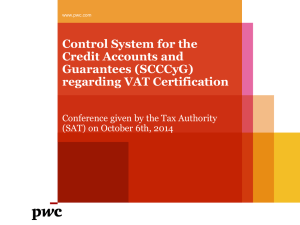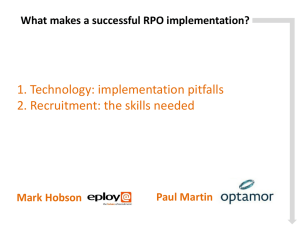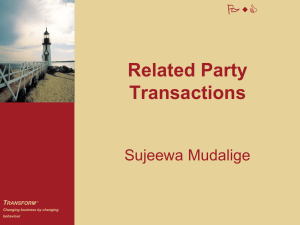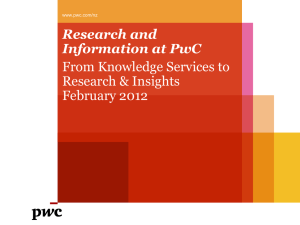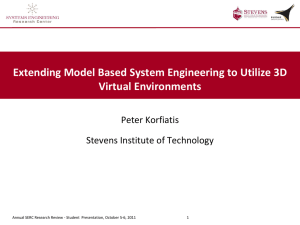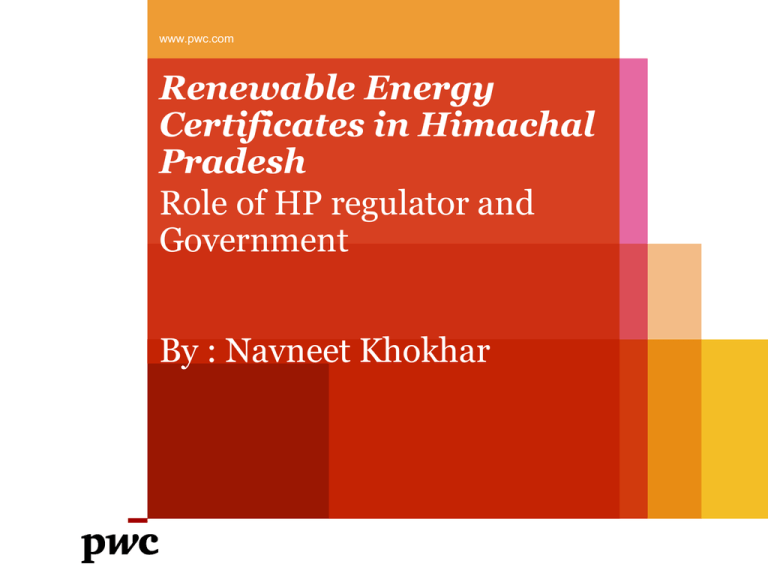
www.pwc.com
Renewable Energy
Certificates in Himachal
Pradesh
Role of HP regulator and
Government
By : Navneet Khokhar
Agenda
Section one : Role of SERC for promotion of RE (under E-Act’03)
Section two : Role of SERC for promotion of RE (under NEP)
Section three : Role of SERC for promotion of RE (under NTP)
Section four : Role of SERC (under CERC-REC mechanism)
Section five : Steps initiated by HPERC (under REC mechanism)
Section six : Additional steps to be undertaken by HPERC (under REC
mechanism
Section seven : Role of State Government
PwC
4 May 2011
2
Role of SERC for the promotion of RE
(under E-Act’03)
PwC
3
Provisions under E-Act’03
Act preamble records “.......promotion of efficient and
environmental benign policies........”
Section 86
(1) (e)
Promote co-generation & generation from RE by:
Suitable measures for connectivity with the grid ;
Sale of electricity to any persons, & also
Specify, for purchase of electricity from RE, a
percentage of the total consumption of electricity in the
area of a distribution licensee.
Section 86
To regulate through agreements for purchase of
power for distribution and supply within the state :
(1) (b)
Electricity purchase;
Procurement process of distribution licensees;
Price at which electricity shall be procured from the
generating companies /licensees /from other sources
PwC
4
Provisions under E-Act’03
Contd.....
Section 61
Specify the terms and conditions for the
determination of tariff
(h)
Guided by the need for promoting co-generation and
generation of electricity from the RE sources
Section 66
Promote development of market (including
trading)
Make regulation providing for :
Section 181
(2)(zi)
PwC
Manner by which the development of market in power
including trading
5
Role of SERC for the promotion of RE
(under NEP)
PwC
6
Provisions under National Electricity Policy
5.12.2
Such percentage for purchase of power from
nonconventional sources should be made applicable for
the tariffs to be determined by the SERCs at the earliest
Progressively the share of electricity from nonconventional sources would need to be increased as
prescribed by SERCs.
Considering the fact that it will take some time before nonconventional technologies compete, in terms of cost, with
conventional sources, the Commission may determine an
appropriate differential in prices to promote these
technologies.
5.12.3
PwC
SERCs may promote arrangements between the cogenerator and the concerned distribution licensee for
purchase of surplus power from such plants.
7
Role of SERC for the promotion of RE
(under NTP)
PwC
8
Provisions under National Tariff Policy
Clause 6.4
Clause 6.4
(1)
PwC
Pursuant to provisions of section 86(1)(e) of the Act, the
Appropriate Commission shall fix a minimum percentage
for purchase of energy from non-conventional sources
taking into account availability of such resources in the
region and its impact on retail tariffs. Such percentage for
purchase of energy should be made applicable for the
tariffs to be determined by the SERCs latest by April 1,
2006.
9
Role of SERC
(under CERC – REC Mechanism)
PwC
10
Role of SERC : State Agency
Designate
SA
SERC
Fix
remuneration
& charges
payable to SA
PwC
Direct SA in
regard to
discharge of
its functions
11
Functions of State Agency
1
Accreditation &
recommendation of
the project for
registration
PwC
12
Functions of State Agency
1
Accreditation &
recommendation of
the project for
registration
PwC
2
Submit quarterly
status report for the
compliance of RPO by
the obligated entities
& suggest appropriate
actions to SERC for
RPO compliance
13
Functions of State Agency
1
Accreditation &
recommendation of
the project for
registration
PwC
2
Submit quarterly
status report for the
compliance of RPO by
the obligation entities
& suggest appropriate
actions to SERC for
RPO compliance
3
Procurement of RECs
from power exchange
in case of default by
obligated entities
14
Role of SERC : RPO
Specify RPO
levels (Solar &
non-solar)
Directions to obligated
entity w.r.t RPO
compliance
Determination
of default
deposit amount
PwC
Recognize REC as
valid instrument for
RPO compliance
Definition of
Obligated
Entities
15
Steps initiated by HPERC
(under REC Mechanism)
PwC
16
Steps initiated by HPERC
In Right
Direction
Particulars
Status
( = Yes)
RPO specified (Solar & NonSolar)
Recognition of RECs as valid
instrument for RPO compliance
Clear definition of obligated
entities
State agency designated
Enforcement mechanism for
non-compliance of RPO
Fixation of fees & charges
payable to state agency
PwC
17
Additional Steps to be undertaken by
HPERC (under REC Mechanism)
PwC
18
Additional Steps to be undertaken
Specific
determination of
Pooled cost of
power purchase
Stipulate/provide
formats for
quarterly status
for RPO
compliance
Steps
Set solar RPO in
line with JNNSM
Facilitate
educating
Obligated Entities
regarding RPO
compliance
PwC
19
Role of State Government
PwC
20
Role of State Government
To facilitate commission in fixation
of RPO
For the promotion of RE projects in
the state
Accelerated implementation
Support in development of
transmission/ sub transmission
infrastructure
Attract developers
PwC
1
2
3
4
5
Technology specific resource
assessment studies
Formulate RE policies
(Technology specific)
Single window clearance
provisions for RE projects
Facilitate power evacuation
Favourable land allotment
scheme
21
Thank You
This publication has been prepared for general guidance on matters of interest only, and does
not constitute professional advice. You should not act upon the information contained in this
publication without obtaining specific professional advice. No representation or warranty
(express or implied) is given as to the accuracy or completeness of the information contained
in this publication, and, to the extent permitted by law, PricewaterhouseCoopers, its members,
employees and agents do not accept or assume any liability, responsibility or duty of care for
any consequences of you or anyone else acting, or refraining to act, in reliance on the
information contained in this publication or for any decision based on it.
© 2011 PricewaterhouseCoopers. All rights reserved. In this document, “PwC” refers to
PricewaterhouseCoopers Private Limited which is a member firm of PricewaterhouseCoopers
International Limited, each member firm of which is a separate legal entity.




